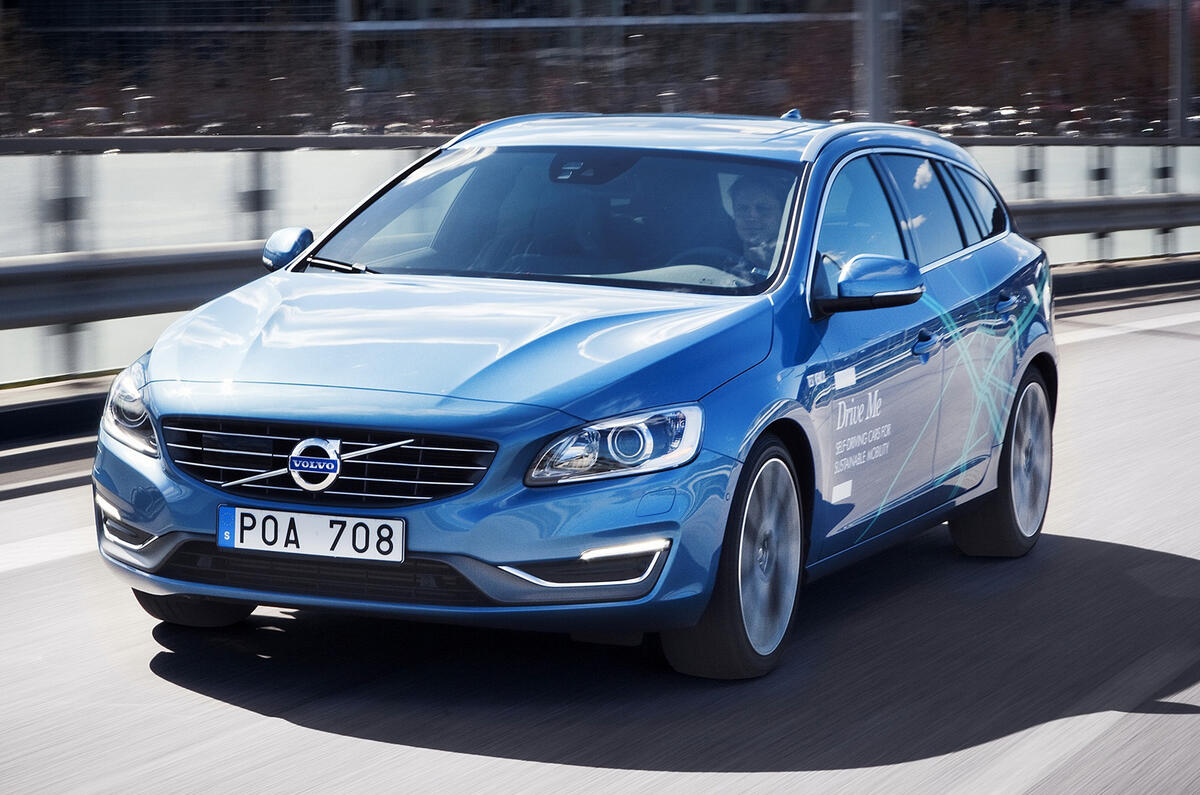Volvo will start the world's first large-scale autonomous car test on roads around Gothenburg within three years.
The Swedish car-maker today confirmed details on a fleet of 100 self-driving Volvo S60 and V60 models that will begin long-term testing on an open loop of the city's road network at the beginning of 2017.
The test will be the first of its kind in the world, putting self-driving cars into the hands of ordinary drivers and allowing them to run autonomously in day-to-day traffic in large numbers. It will last two years, and aims to develop autonomous technology for inclusion in Volvo's road cars by the end of the decade.
The technology will form a key part of the company's 'Vision 2020' strategy, as part of which Volvo plans to completely rule out accidental deaths and serious injuries to those travelling in new Volvos bought after that year.
The autonomous cars will navigate a test network of some 32 miles of Gothenburg's motorway and ring road network, including several multi-lane intersections but no traffic light-governed intersections or inner city roads.
The cars will be able to reproduce good lane-keeping, select appropriate speeds, maintain safe distances to other traffic, merge safely into traffic and react to developing hazards.
On trial as part of a joint project between Volvo and the Swedish transport authorities, they will feature self-contained autonomous systems including lane-keeping sensors, both radar and laser transceivers, and cameras to scan the road ahead and behind.
The project, dubbed DriveMe, was announced late last year, when Volvo's technical specialist Erik Coelingh announced the scheme's aim was to make cars "able to handle all possible traffic scenarios by themselves, including leaving the traffic flow and finding a safe ‘harbour’ if the driver, for any reason, is unable to regain control."
While Volvo's long-term plan is to enable fully unsupervised autonomous driving, it - like all global car-makers - must wait for development of global driving legislation, and of supporting insurance and policing framework, before the market is ready for it.
"As things stand, the Vienna Convention says that a driver must always be in control of his vehicle, and responsible for what happens to it," explained Volvo's Innovations Manager Jonas Ekmark. "In Sweden, the interpretation of that convention is flexible enough to allow us to carry out this kind of pilot scheme. But in Germany, the interpretation is much more strict."





Join the debate
Add your comment
Car Insurance
-
It'll all work perfectly